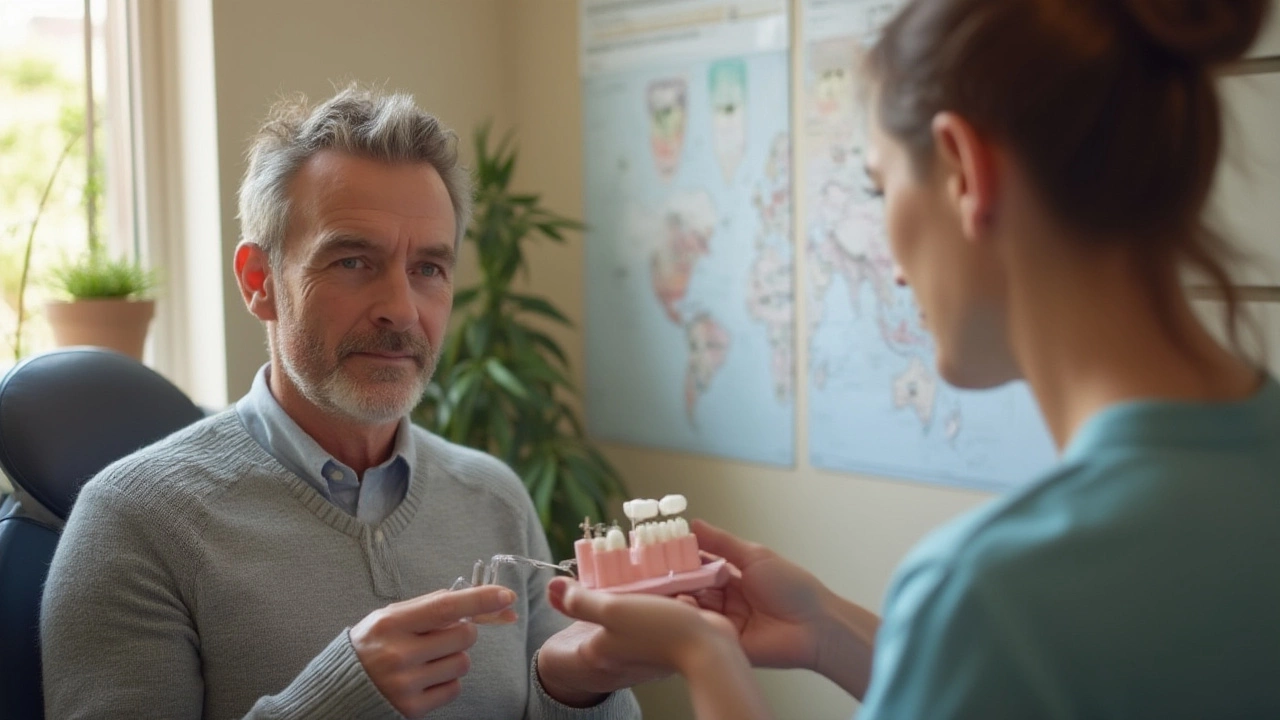Dental Contraindications: Who Should Skip Certain Dental Treatments?
Not every dental procedure is safe for everyone. Whether you’re thinking about a tooth implant, a root canal, or a simple cleaning, some medical conditions or lifestyle habits can turn a routine visit into a real problem. Below we break down the most common red flags so you can decide if a treatment is right for you before you sit in the dentist’s chair.
Medical Conditions That Limit Dental Care
Heart disease, uncontrolled diabetes, and immune‑system disorders are the big three. If your blood sugar is constantly high, wounds heal slower, which means a dental implant or even a deep cleaning can become an infection hotspot. Likewise, people with recent heart valve surgery or a history of endocarditis need antibiotics before invasive work to avoid bacteria entering the bloodstream.
Bleeding disorders such as hemophilia or patients on strong blood‑thinners (warfarin, clopidogrel) also need extra caution. Dentists can still work on you, but they’ll often adjust the timing of medication or use special suturing techniques to keep bleeding under control.
Cancer patients on chemo or radiotherapy face another set of challenges. Radiation to the jaw can weaken bone, making implants prone to failure. Chemo suppresses the immune system, so any invasive procedure carries a higher infection risk. In these cases, dentists may suggest a delay until your blood counts improve.
Lifestyle Factors and Common Risks
Smoking is a silent saboteur. It reduces blood flow to the gums, slows healing, and raises the chance of implant loss by up to 50 %. If you smoke, consider quitting or at least pausing for a few weeks before any major work.
Heavy alcohol use can interfere with medication metabolism and also thin the blood, similar to anticoagulants. It may increase bruising after extractions or make you more prone to dry socket.
Pregnancy isn’t a blanket ban on dental care, but elective procedures like implants or major oral surgery are usually postponed until after delivery. Hormonal changes can make gums inflamed, so routine cleanings are fine, but anything invasive should be scheduled later.
Finally, poor oral hygiene or existing gum disease (periodontitis) is a strong contraindication for implants. The infection can spread around the implant site, leading to failure. Your dentist will likely recommend treating the gum disease first, then reassessing the implant option.
So, how do you know if you’re in the clear? Start by making a detailed list of any current or past medical issues, the medications you take, and lifestyle habits like smoking or drinking. Bring this list to your appointment – a good dentist will cross‑check it against the planned procedure and let you know if any adjustments are needed.
If you discover a red flag, don’t panic. Most contraindications have workarounds: antibiotics before surgery, temporary medication pauses, or choosing a less invasive alternative. The key is open communication and giving your dentist all the facts.
Remember, the goal isn’t to scare you away from care; it’s to keep your mouth healthy without risking your overall health. By spotting contraindications early, you save time, money, and potentially painful complications down the road.

